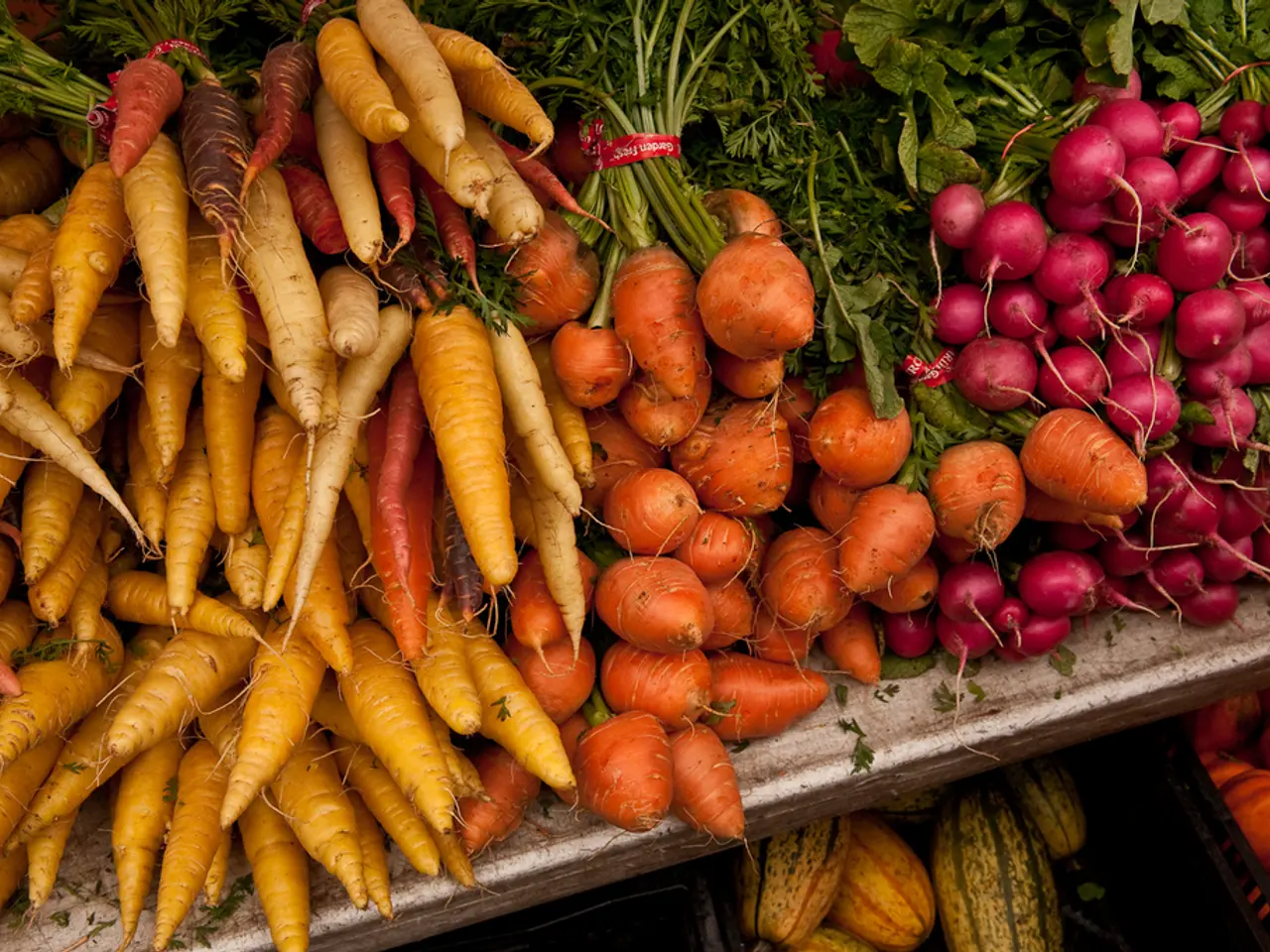Sustainable Techniques for an Eco-Conscious Vegetable Garden Using Organic Methods
Starting a garden can be a rewarding and fulfilling experience, especially when it comes to organic vegetable gardening. Here's a step-by-step guide to help you create a thriving, chemical-free garden.
Building a Healthy Soil Base
The foundation of any successful organic garden lies in the quality of the soil. To create a nutrient-rich, fertile environment for your plants, consider the following tips:
- Improve Soil Quality: Build healthy soil by adding organic matter such as compost, cover crops, and amendments like sphagnum peat moss. These elements enrich the soil, improve its structure, and support beneficial microorganisms.
- Composting: Use compost to introduce beneficial microbes and nutrients, thereby accelerating organic matter decomposition and enriching soil fertility. Compost acts as a moisture retainer and supports microbial activity that improves soil health.
- Mulching: Apply organic mulches such as straw or shredded leaves around plants to retain moisture, suppress weeds, moderate soil temperature, and prevent erosion. Mulch breaks down over time to further enrich soil organic matter.
- Pest Control: Use non-chemical, organic methods like companion planting (placing mutually beneficial plants together) to deter pests naturally. Avoid synthetic herbicides and pesticides that harm soil life and disrupt ecosystem balance.
- Fertilizing: Apply organic fertilizers and soil amendments containing beneficial microbes and humates, such as Espoma Bio-Tone or products from MicroLife, to boost nutrient availability and promote healthy plant growth. Incorporate amendments before planting to prepare the soil.
Starting Small and Sensibly
For beginners, it's essential to start small and manageable. A 100 square feet garden is a great starting point. Raised beds can be an excellent choice, as they improve drainage, allow better soil amendment incorporation, and reduce soil compaction. When purchasing raised beds, ensure they are free of chemical treatments.
Seeds vs Starter Plants
Both seeds and starter plants (young plants) have their advantages. Seeds benefit from improved seedbed conditions via soil amendments like peat moss, which aids root development during germination. Starters can be used to shorten growing time and ensure stronger early growth, especially in shorter seasons or for slow-maturing crops.
Companion Planting
Plant vegetables and herbs that support each other by improving growth, repelling pests, or enhancing nutrient uptake. For example, planting nitrogen-fixing legumes near heavy feeders enriches soil nitrogen naturally.
Extending the Growing Season
Utilize raised beds to warm soil earlier in spring, cover crops to protect soil in colder months, and mulches or row covers to moderate soil temperature and protect plants from frost. No-till or minimal tilling methods preserve soil structure for continued productivity.
By following these organic techniques, you'll create a resilient garden ecosystem, promoting healthy vegetables with minimal synthetic inputs. Happy gardening!
Sources:
- MR Garden - Organic Gardening Hack (2025)
- Simplify Gardening - Reviving Dead Soil (2025)
- Grow Organic - Soil Amendments with Peat Moss (2025)
- Rainbow Gardens - Building Healthy Garden Soil (2025)
- Ask Extension - Raised Bed Nutrients (2025)
Incorporating home-and-garden practices like organic gardening can enhance your lifestyle by creating a thriving plant sanctuary at home. To complement gardening efforts, consider incorporating a home-and-garden focus on the development of your home-gardening space. For instance, the strategic companion planting of vegetables and herbs can boost growth, repel pests, and enrich soil nutrients, improving the overall health of your home-garden.





